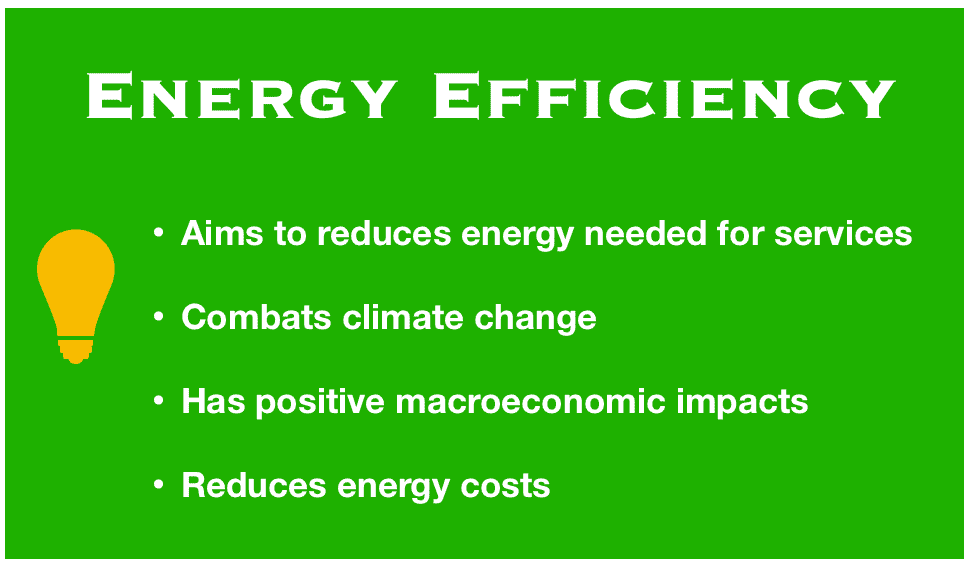 Energy efficiency is the practice of using less energy to provide the same amount of useful output from a service (such as heating water, lighting, or cooling a fridge).
Energy efficiency is the practice of using less energy to provide the same amount of useful output from a service (such as heating water, lighting, or cooling a fridge).
For example, light emitting diode (LEDs) and compact fluorescent lights (CFLs) have revolutionized energy efficiency in lighting and use far less energy for the same amount of illumination as traditional incandescent bulbs.
If you switch from an old style lightbulb to a fluorescent bulb you will be producing the same amount of light, but using less energy. That is energy efficiency.
Another example would be using proper insulation material in a building so that less energy is required for heating and cooling.
Simply put, if something uses less energy and to deliver the same performance as its traditional version, then it is energy efficient.
Every year a lot of energy is wasted because of heat loss and inefficient technology. This leads to increased carbon pollution and costs consumers and businesses money.
According to the US Department of Energy, energy efficiency is “one of the easiest and most cost effective ways to combat climate change, clean the air we breathe, improve the competitiveness of our businesses and reduce energy costs for consumers.”
New technology is helping drive the commercialization of new products that are much more energy efficient compared to older alternatives. For example, modern energy-efficient refrigerators use around 40 percent less energy than conventional models did in 2001.
It is important not to confuse energy efficiency with energy conservation. The main difference between the two is that energy efficiency doesn’t require an individual to change or alter their behavior and habits, while that is the whole basis of energy conservation (such as turning off appliances when they are no longer in use).
Energy efficiency and renewable energy are considered to be the twin pillars of sustainable energy policy.
The International Energy Agency’s “Energy Efficiency 2018” report found that efficiency gains would reduce energy bills for consumers by more than $500 billion dollars per year, lower energy imports and reduce air pollution. Air pollution includes the release of harmful particulates or substances into the atmosphere.
“While various countries are endowed with different energy resources – whether it’s oil, gas, wind, solar or hydropower – every single country has energy efficiency potential,” said Dr Fatih Birol, the IEA’s Executive Director.
“Efficiency can enable economic growth, reduce emissions and improve energy security. Our study shows that the right efficiency policies could alone enable the world to achieve more than 40% of the emissions cuts needed to reach its climate goals without requiring new technology. Thanks to the critical importance of energy efficiency in building a secure and sustainable future, the IEA considers it the ‘first fuel’ and facilitates the exchange of best practices among advanced and emerging economies.”
